It's getting chippy out there!
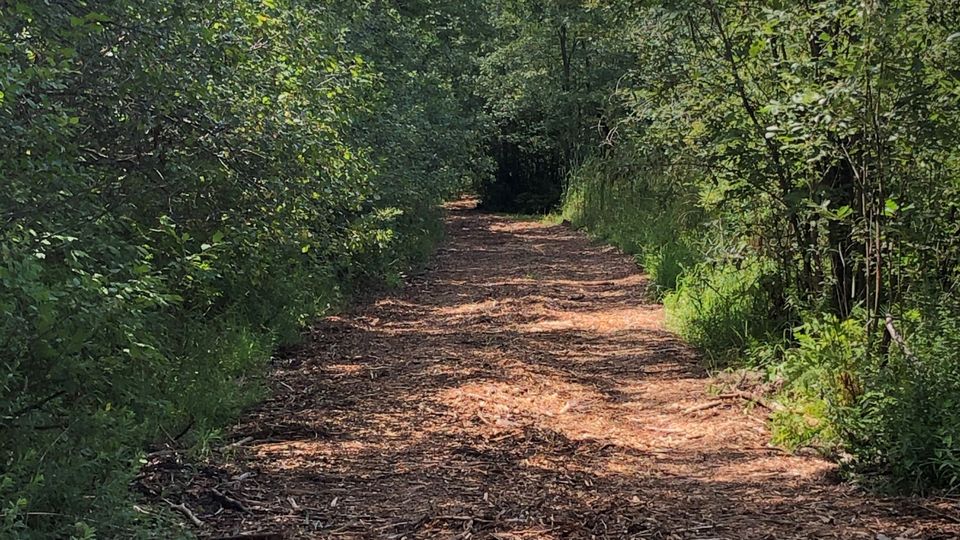
To manage and enjoy our forest and farm, we need to move around. But we don't want to be mud bogging, silting up our own groundwater and creating deeply rutted trails attracting amphibians then destroying their eggs. We want attractive, functional, and responsible forest trails.
As described in Land Changes Naturally. Or Not., we have areas in our forest that, in Spring and Fall, are too soft and wet to pass on an ATV without creating an awful mess. We either have to stay out of these areas for half the year, or find a solution.
Driving down a corduroy road
Being a Hip fan (RIP, Gord), I sing this lyric (from Hundredth Meridian) to myself often, imagining men laying untold kilometers of trees, side by each, across Canadian muskeg thick with mosquitos. Advancing slowly, one log at a time: fell a tree, limb, cut, drag, place, and repeat. Try it for an hour, advancing ten or 15 feet if you're in shape, and images emerge of a landscape unfolding endlessly in front of sweat and sun drenched crews pushing through the Boreal.
Corduroy roads have been unearthed that are over 200 years old (like this one in Waterloo), and the one pictured below, with minimal decay, characteristic of anaerobic environments lacking the biology to break down wood fiber.
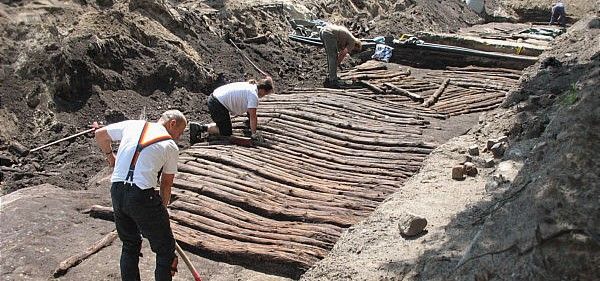
Corduroy is a brilliant design solution: simple, cheap, effective, durable, and environmentally benign. The logs, laid on wet, soft ground, float heavy loads like snowshoes.
Sadly, we have countless tall, straight, and almost dead ash trees. The loss of vast forests of ash in North America has been and continues to be tragic. In Ottawa, tens of thousands of ash trees from our urban forest have been turned into wood products. Here, I'm happy to give a few a noble second life as an enduring, forest trail.
Ash to Ashes
The ash trees are victims of the invasive Emerald Ash Borer, which lays its eggs on the bark in summer. The larvae hatch, burrow into the sapwood, hibernate over winter, then eat and grow, weaving back and forth. Soon, they girdle the tree, severing its sap supply. Young adults complete the life cycle in May and June as they chew their way back out of the tree and fly away. Ash is - or was - the most common tree on our property, and all of them are either dead or dying, like all ash trees in the Ottawa Valley.

Wood Chips
Corduroy does have a drawback. Its rough surface is unpleasant to drive across for long, difficult to walk on, and potentially dangerous for larger animals like horses. And it’s so, so slow to build. We needed something more practical, at least for the majority of areas where corduroy isn't necessary, but where the surface still needs to be raised to keep it dry and durable. The solution: hundreds of tons of wood chips!
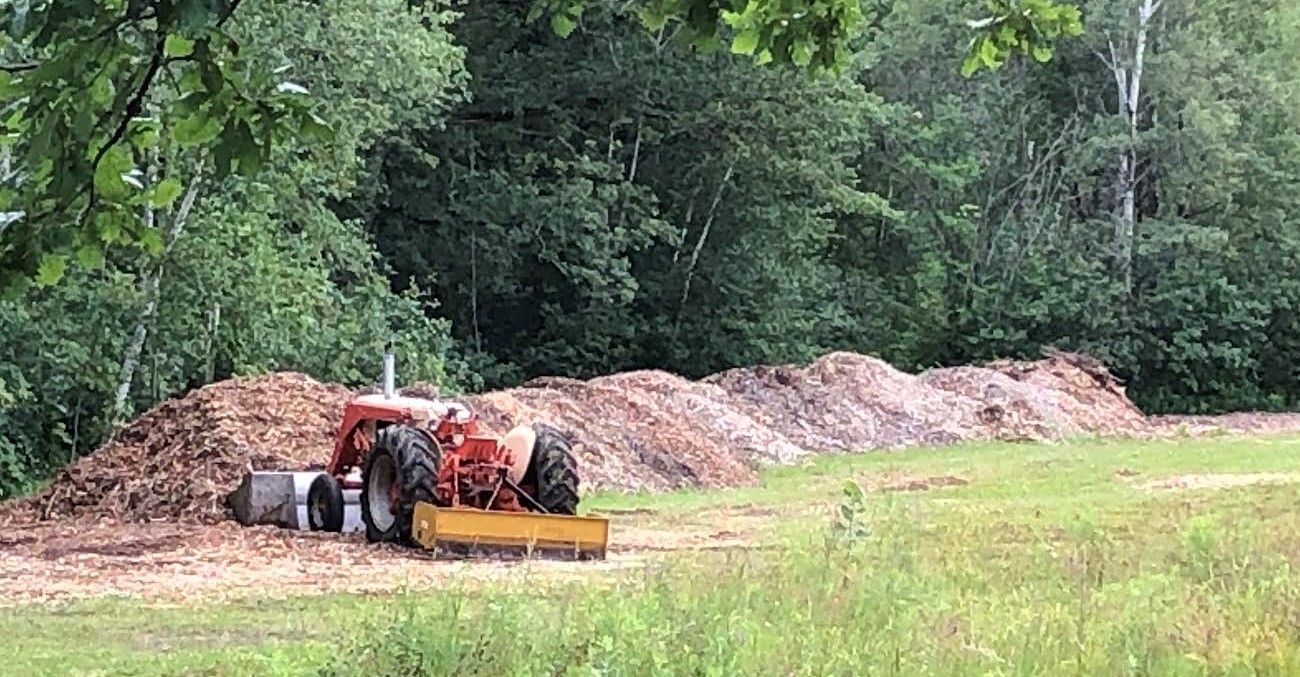
The owner of a local tree service company needed a reliable place to dump wood chips almost daily. Over the past two years, 150 to 200 five-ton truckloads have arrived, and every chip was carried by our trusty 1967 Case tractor. Most think I need to see a doctor, but after a day of the corporate grind that consumes my alter ego, a little tractor therapy is just what the doctor ordered.
I spread wood chips a foot deep across the corduroy or directly on the trail. The chips slowly settle, mixing into the mud and clay. They encase the logs in corduroy sections. If water seeps through as the tractor's tires compress it, I top it up. As it firms, it's a beautiful surface. It smells amazing. It's loaded with fungi and feels wonderful underfoot. It's permeable. And it's pure, local, organic gold. And it keeps coming, thanks to our friendly neighborhood arborist.
My enthusiasm for it all is spreading, too. When one of the trucks pulls into the yard, the first person who sees it yells, "wood chips!"
With a couple kilometers of trail to go, I'll be in therapy for a while, and that is just fine with me.
And, yes, for those of you wondering, I've found the odd muddy old skull.
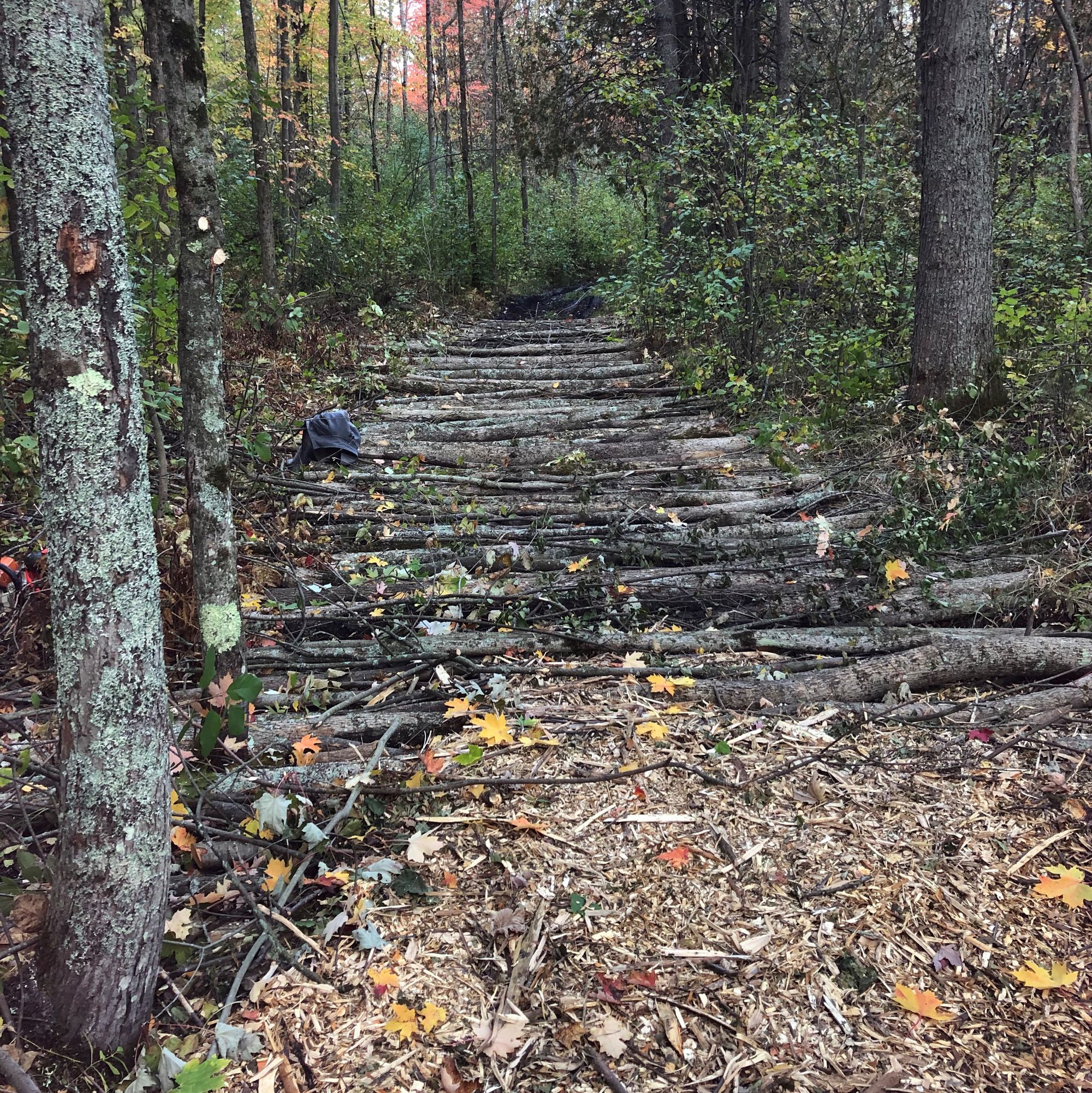
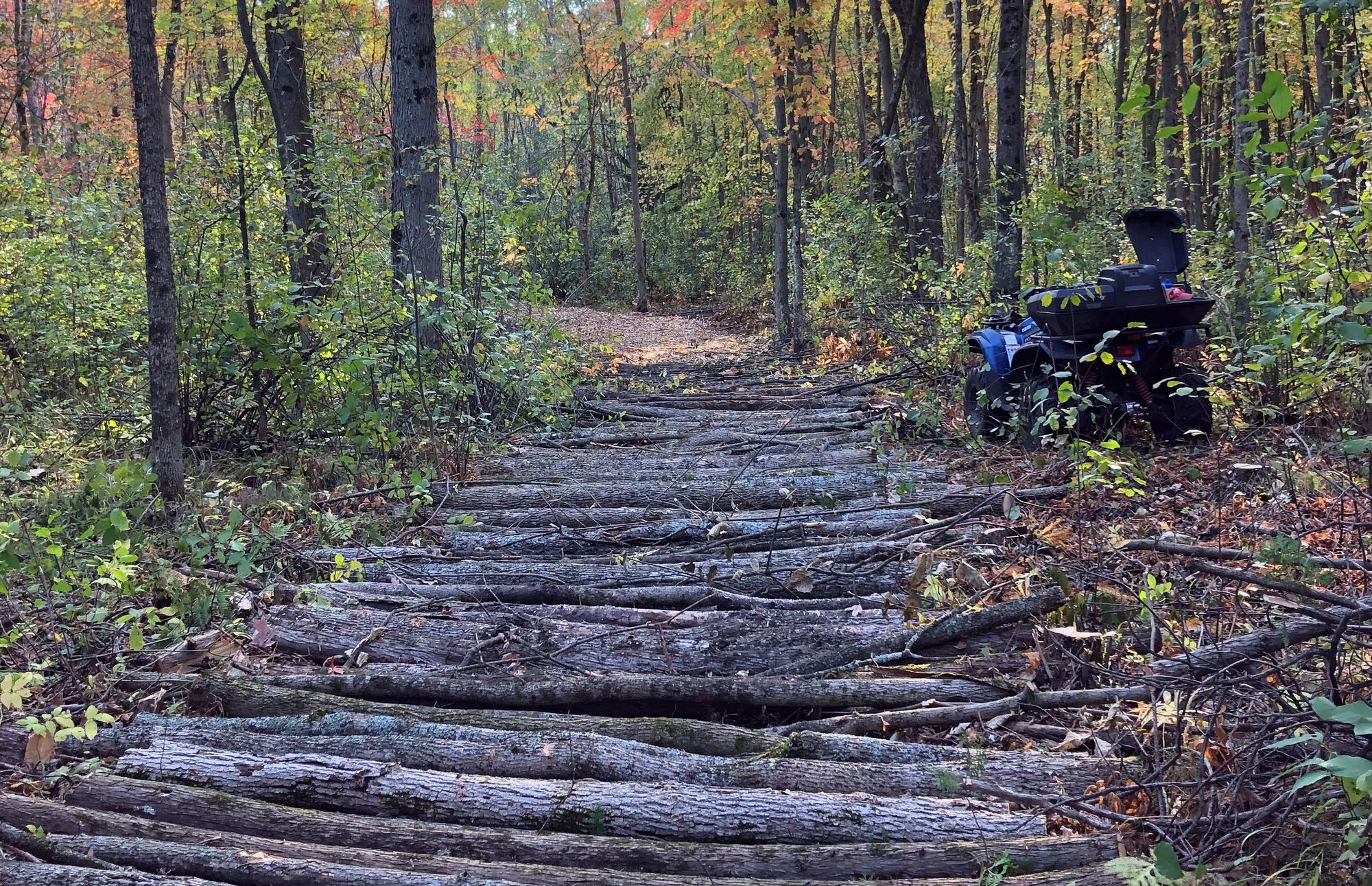
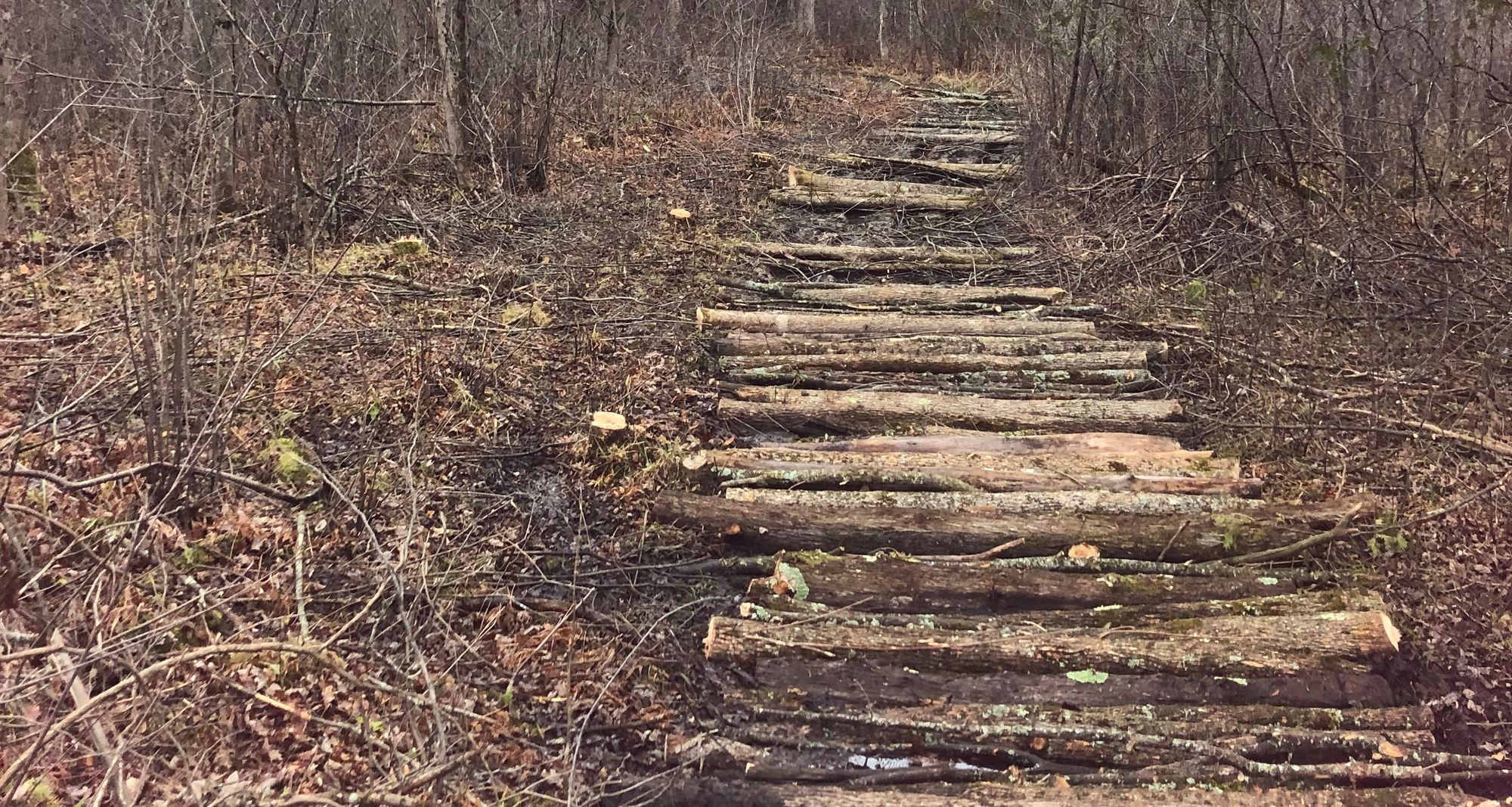
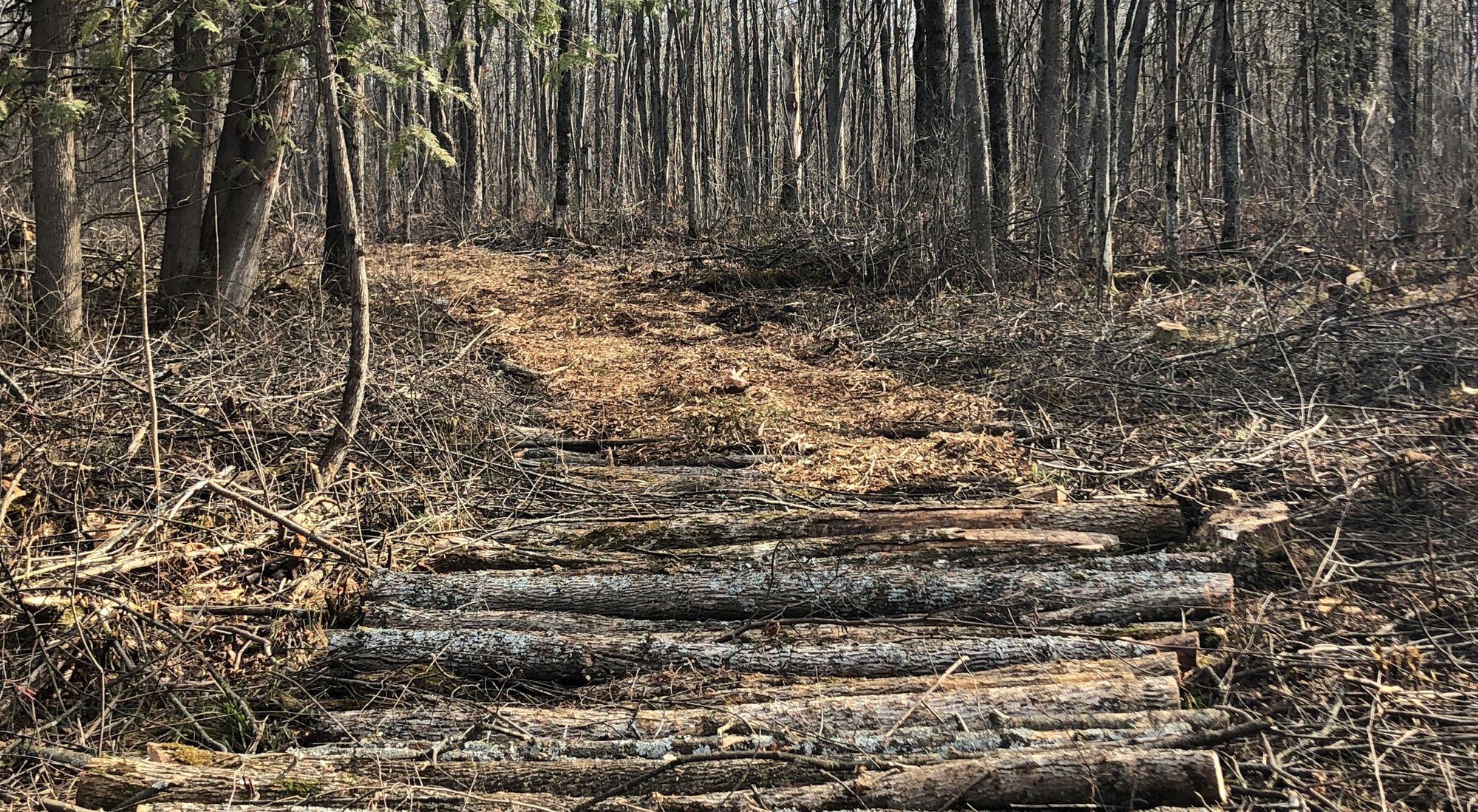
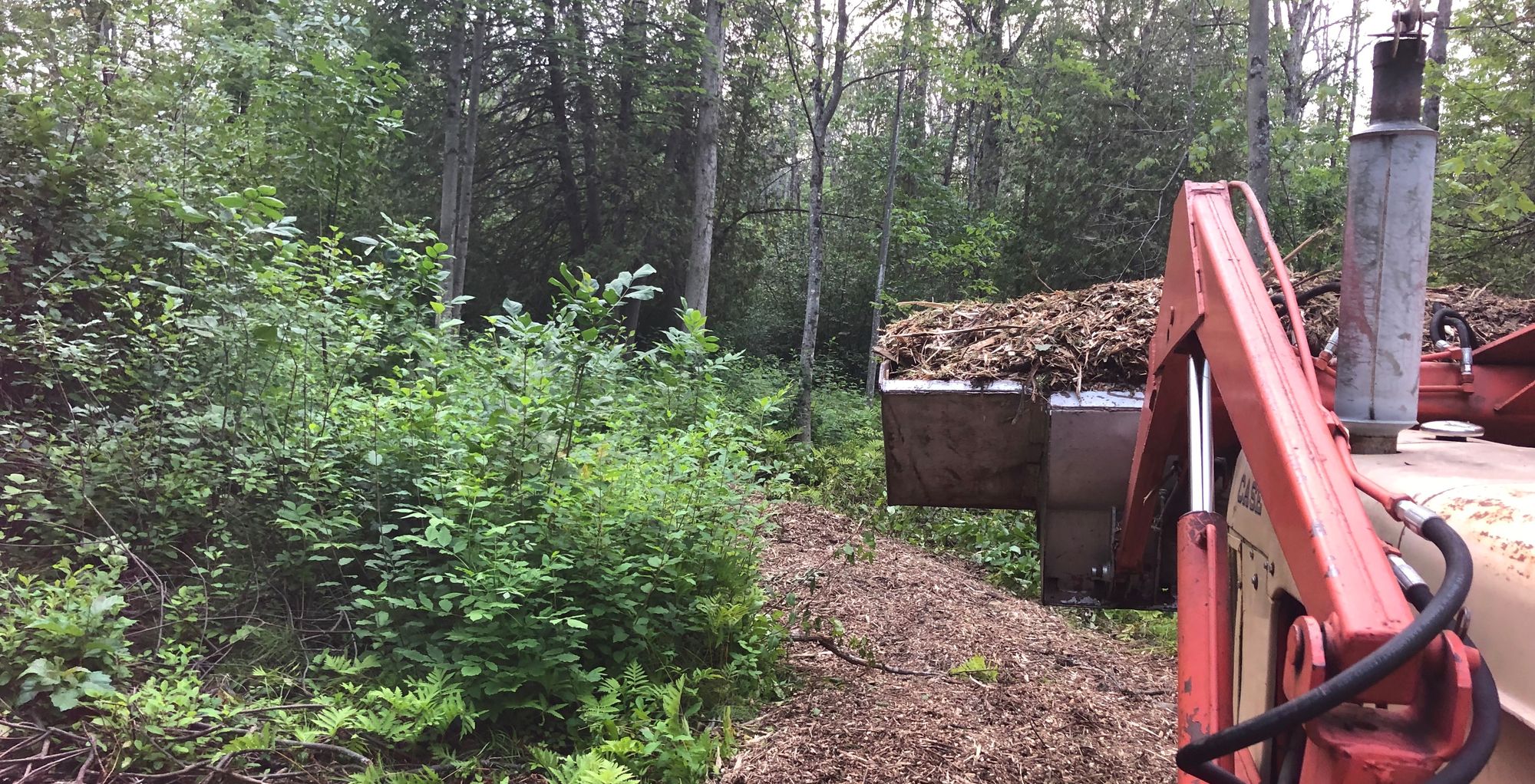
"A raven strains along the line of the road - carrying a muddy, old skull - The wires whistle their approval - off down the distance"
- Gord Downie, The Hip, from Hundredth Meridian
Thanks for reading. Send me an email anytime. You can peruse other musings of this wannabe farmer from the homepage, or click on my picture, below.